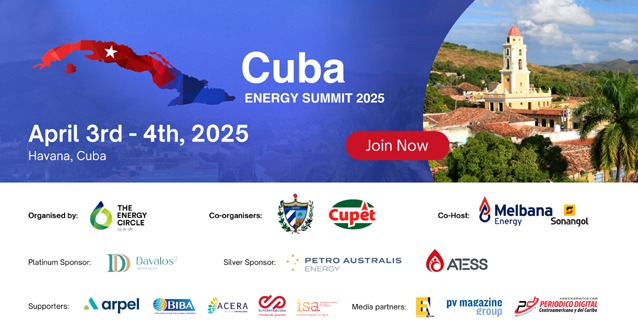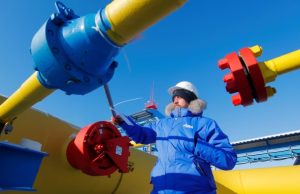
By German Lopez
After months of gas prices making life more expensive, they have quietly started to go down — providing financial relief for many Americans.
The average nationwide price this week was $4.49 a gallon, down from a peak of $5.01 in June. The average price of gas is still about $1.30 higher than it was a year ago, but it has now fallen for more than a month.


That is welcome news for consumers: Higher gas prices affect not just people filling their cars but also, through higher transportation costs, the price of almost everything else.
ADVERTISEMENT
Continue reading the main story
Falling prices are also potentially good news for political and social stability. Because gas prices are so visible — posted on giant signs across the country — they have an outsize impact on how Americans feel things are going, experts say. The sentiment can extend beyond financial concerns.
Consider Russia’s invasion of Ukraine, which caused gas prices to spike in the West as Europe vowed to stop relying on Russian oil and gas. American and European leaders have worried since the war began that rising gas prices could hurt public support for efforts against Russia, because people could come to see the personal cost as too great. So falling gas prices could help sustain public support for Ukraine.
Historically, rising gas prices have also hurt incumbent political leaders. Sure enough, approval ratings for President Biden and European leaders have fallen as the prices of gas and other goods have increased. Unchecked, it is the kind of widespread disapproval that can lead to global political instability and extremism. In Italy, for example, the recent collapse of the government could give way to a takeover by a far-right alliance that includes a political party with neo-fascist roots.
But gas prices also get at something deeper than partisan politics or any individual policy debate: They help dictate the public mood. As the pandemic has waned, Americans have hoped for a return to normal. But rising gas prices and inflation, along with an increase in violent crime and the war in Ukraine, instead feed into a broader sense of chaos and anomie already fueled by Covid. It is as if Americans have traded some crises for others.
Editors’ Picks
You Might Be a Hall of Famer, but Do You Have a Statue?The Case for Being TouchedVibrators, Weed, Plants: What Can You Take on a Plane?
ADVERTISEMENT
Continue reading the main story
“Is this for real?” Caroline McNaney in New Jersey recalled thinking. “I took a job further from home to make more money, and now I feel like I didn’t do anything for myself because gas is so high.”
Falling gas prices, then, offer the kind of reprieve people have wanted after a few chaotic years.


Why gas prices fell
Several factors are behind the good news. Oil and gas production has ticked up in the U.S. and elsewhere, increasing supply. Some people are driving less to avoid high prices, decreasing demand. Continued Covid disruptions, particularly in China, have also played a role; lockdowns lead to fewer people traveling, further reducing global demand for oil and gas.
The process is playing out slowly — a result of what experts call the “rocket and feather” effect: Gas prices tend to rise quickly, like a rocket, and fall more slowly, like a feather. Gas stations are quicker to increase prices and slower to reduce them to maximize profits. And while rising gas prices drive consumers to comparison-shop more, falling prices ease the need to do so — reducing competitive pressure.
What’s next
Since gas prices fall more slowly than they rise, they still have room in the coming weeks to drop further — to catch up with reduced oil prices, said Christopher Knittel, an economist at M.I.T.
And as strange as it may sound, a weakening economy could help further reduce gas prices. The Federal Reserve has recently increased interest rates, raising the cost of borrowing in an effort to pull down demand and tame inflation. That could lead to more unemployment, but also to a slowdown in price increases after months of record inflation.
Beyond a few weeks, the future of gas prices is less certain. “There are still risks out there,” said Rachel Ziemba, an energy expert at the Center for a New American Security.
ADVERTISEMENT
Continue reading the main story


Among them: More atrocities in Ukraine could further push Europe to stop buying Russian oil and gas. Russia could retaliate against Western sanctions by withholding its shipments, tightening worldwide supply again. Climate change continues to make oil and gas companies cautious about boosting production too much. China’s economy could improve and increase demand, particularly if Covid restrictions ease.
But for now, falling gas prices are one bit of good news during a summer marred by headlines about inflation, war, heat waves and rising Covid cases.
_______________________________________________________________
German Lopez is a writer for The Morning, The Times’s flagship daily newsletter, where he covers major world events and how they affect people. @germanrlopez . Energiesnet.com does not necessarily share these views.
Editor’s Note: This article was originally published by The New York Times-NYT on July 22, 2022. A version of this article appears in print on June 7, 2022, Section A, Page 21 of the New York edition with the headline: From the Big Short to the Big Scam. EnergiesNet.com reproduces this article in the interest of our readers. All comments posted and published on EnergiesNet.com, do not reflect either for or against the opinion expressed in the comment as an endorsement of EnergiesNet.com or Petroleumworld.
Use Notice: This site contains copyrighted material the use of which has not always been specifically authorized by the copyright owner. We are making such material available in our efforts to advance understanding of issues of socially, environmental and humanitarian significance. We believe this constitutes a ‘fair use’ of any such copyrighted material as provided for in section 107 of the US Copyright Law. In accordance with Title 17 U.S.C. Section 107. For more information go to: http://www.law.cornell.edu/uscode/17/107.shtml.
EnergiesNet.com 07 22 2022
_____________________________________












